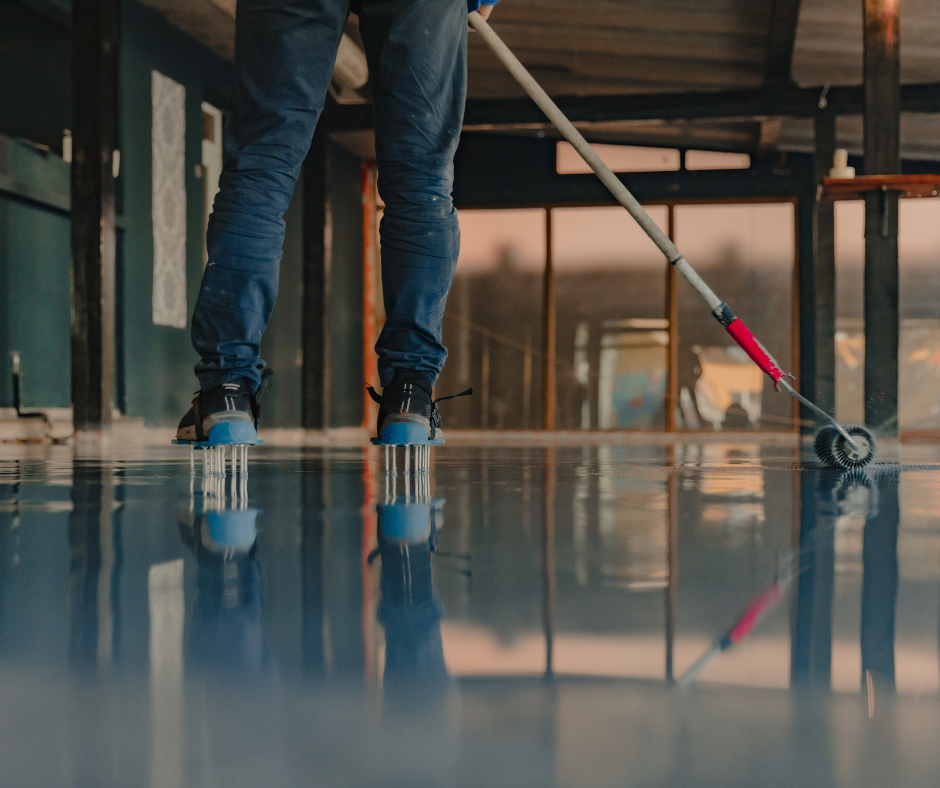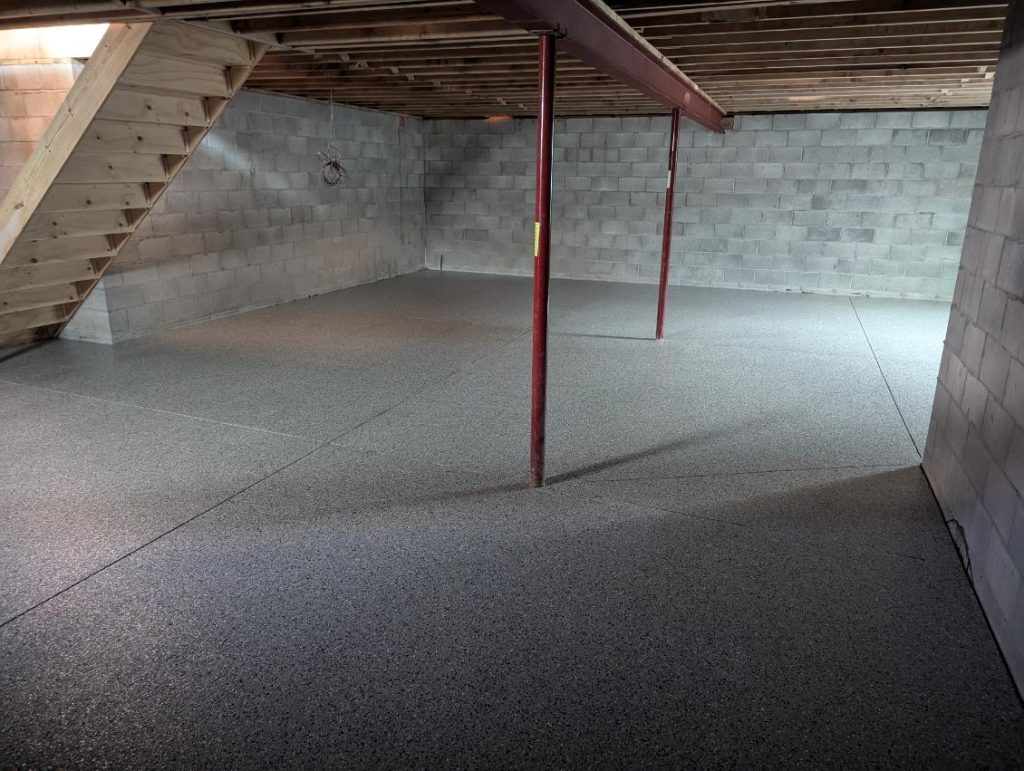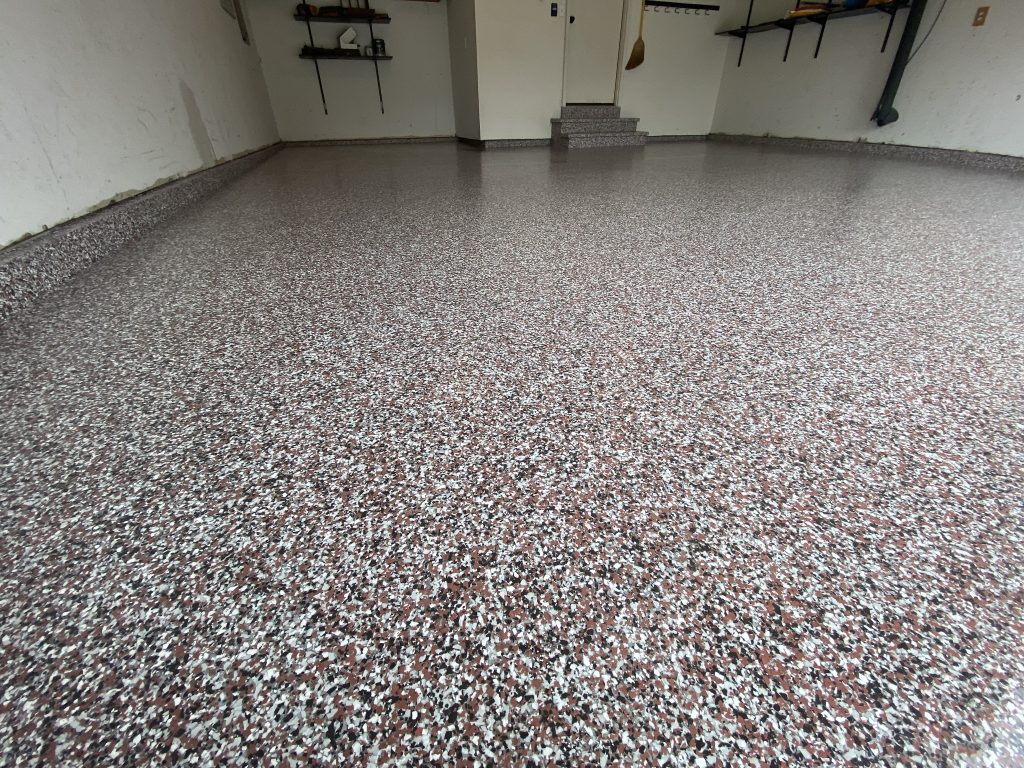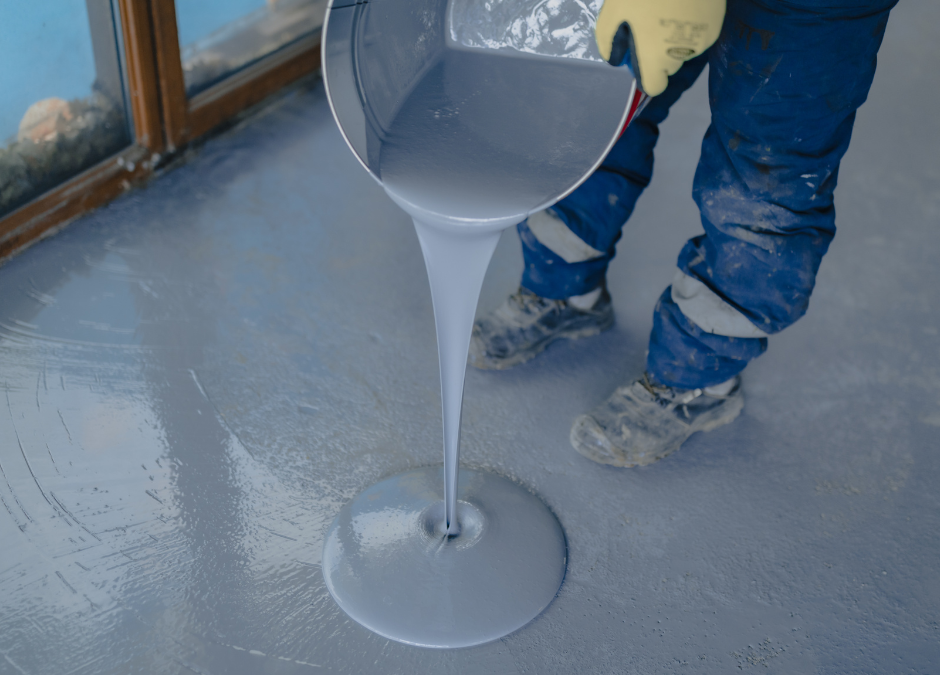Transform your garage into a durable and aesthetically pleasing space with our comprehensive guide to epoxy coating. This article addresses the most frequently asked questions from homeowners, providing essential insights into the benefits, application process, and maintenance of epoxy floors and epoxy in garage floor. Equip yourself with the knowledge needed to make informed decisions and achieve a professional finish in your garage.
Understanding Epoxy Coating for Garage Floors
What is Epoxy Coating?
When considering epoxy paint for garage floors, you need to understand how epoxy works. Epoxy coating is a durable and resilient flooring solution that consists of a combination of resin and hardener. When these components are mixed, they create a chemical reaction that results in a strong, adhesive layer that bonds to the concrete surface. Before you go about painting a garage floor with epoxy, you should know the types of epoxy floor coatings available.
There are several types of epoxy coatings available for garage floors, including:
- Solid Epoxy: A thick, durable coating ideal for high-traffic areas.
- Water-Based Epoxy: Easier to apply and clean, suitable for DIY projects.
- Solvent-Based Epoxy: Offers a glossy finish and is resistant to chemicals but requires careful handling.
In residential settings, epoxy coatings are commonly used not only in garages but also in basements, workshops, and other areas where a robust floor covering is needed. Garage epoxy is certainly the most common, however.
Benefits of Epoxy Coating for Garage Floors
Epoxy coating offers numerous benefits for homeowners looking to enhance their garage space:
- Durability and Resistance to Wear and Tear: Epoxy finishes are highly resistant to impacts, abrasions, and chemicals, making them ideal for garages that experience heavy use.
- Aesthetic Appeal and Customization Options: With a variety of colors and finishes available, homeowners can customize their epoxy finish garage floor to match their personal style and enhance the overall look of the garage.
- Easy Maintenance and Cleaning Advantages: Epoxy floors are non-porous, which means they resist stains and are easy to clean. Regular maintenance involves simple sweeping and occasional mopping.

The Epoxy Coating Application Process
Preparing Your Garage Floor for Epoxy Coating
Before applying epoxy, it is crucial to prepare the garage floor properly. Here are the steps involved:
- Cleaning the Existing Floor: Remove any dirt, grease, or oil stains using a degreaser and a stiff brush. Rinse thoroughly and allow it to dry.
- Repairing the Floor: Fill in any cracks or holes with an appropriate concrete filler to ensure a smooth surface.
- Moisture Testing: Conduct a moisture test to ensure the concrete is dry enough for epoxy application. Excess moisture can lead to adhesion issues.
- Tools and Materials Needed: Gather essential tools such as a floor grinder, vacuum, roller, and mixing bucket, along with the epoxy coating itself.
Applying Epoxy Coating
Once the floor is prepared, follow these detailed instructions for mixing and applying epoxy:
- Mixing the Epoxy: Follow the manufacturer’s instructions for mixing the resin and hardener. Ensure you mix only the amount you can apply within the recommended working time.
- Applying the Epoxy: Use a roller to apply the epoxy evenly across the floor. Start from the farthest corner and work your way towards the exit to avoid stepping on wet areas.
- Achieving a Professional Finish: For a smooth finish, use a squeegee to spread the epoxy evenly. Consider adding decorative flakes for added texture and visual appeal.
- Common Mistakes to Avoid: Avoid applying epoxy in high humidity or low temperatures, as this can affect curing. Also, ensure proper ventilation during application.
Maintenance and Care for Epoxy Coated Garage Floors
Routine Maintenance Tips
To keep your epoxy coated garage floor looking its best, follow these maintenance tips:
- Recommended Cleaning Products: Use a pH-neutral cleaner or a mild soap solution for regular cleaning. Avoid harsh chemicals that can damage the coating.
- Preventing Damage: Place mats in high-traffic areas and avoid dragging heavy objects across the floor to prevent scratches.
- Signs of Reapplication or Repair: Look for signs of wear, such as discoloration or peeling, which may indicate the need for reapplication.

Troubleshooting Common Issues
If you encounter problems with your epoxy floor, here are some troubleshooting tips:
- Peeling or Bubbling: This may occur due to moisture issues or improper application. Address the underlying moisture problem and consider reapplying the epoxy.
- Discoloration and Stains: Use appropriate cleaning agents to remove stains. If discoloration persists, it may be time to consider a new coat of epoxy.
- Seeking Professional Help: If issues persist or if you are unsure about repairs, consult a professional for assistance.
Frequently Asked Questions about Epoxy Coating Garage Floors
Cost Considerations
When considering epoxy coating for your garage floor, it is essential to understand the costs involved:
- Average Cost of Installation: The cost of epoxy coating installation can range from $3 to $12 per square foot, depending on the type and complexity of the project.
- Factors Influencing Pricing: Factors such as the size of the garage, the condition of the existing floor, and the type of epoxy used can affect the overall cost.
- Cost Comparison with Other Flooring Options: Epoxy flooring is often more cost-effective than other options like tile or polished concrete, especially considering its durability and longevity.
Longevity and Warranty Information
Understanding the longevity and warranty of your epoxy coated garage floor is crucial:
- Expected Lifespan: Epoxy coated garage floors can last anywhere from 5 to 10 years or longer, depending on usage and maintenance.
- Warranty Coverage: Most manufacturers offer warranties that cover defects in materials and workmanship. Be sure to read the fine print to understand what is covered.
- Factors Affecting Longevity: Proper installation, maintenance, and environmental conditions can all impact the lifespan of your epoxy coating.
Safety and Environmental Concerns
When applying epoxy coatings, it is essential to consider safety and environmental factors:
- Safety Precautions: Use gloves, goggles, and a respirator during application to protect yourself from fumes and skin contact.
- Environmental Impact: While epoxy coatings are durable, they can emit volatile organic compounds (VOCs). Look for low-VOC options to minimize environmental impact.
- Eco-Friendly Alternatives: If you are concerned about the environmental impact, consider exploring eco-friendly flooring solutions such as rubber or recycled materials.

Conclusion
In summary, when considering floor epoxy paint, you should know that epoxy coating for garage floors offers numerous benefits, including durability, aesthetic appeal, and easy maintenance. Homeowners should weigh their options carefully and consult professionals when necessary to ensure a successful application. For example, CycloSpartic™ coatings by Garage Force are far superior in durability, strength and longevity when compared to garage floor covering epoxy. Transforming your garage with epoxy flooring can enhance both functionality and appearance, making it a worthwhile investment for any homeowner.

